mRNA Delivery Technology for Biologics
Inquiry
The process of applying mRNA therapy to various diseases involves selecting the appropriate target, designing and modifying the mRNA sequence to enhance stability, and using a suitable delivery platform to ensure correct protein expression. CD Formulation is dedicated to researching and designing mRNA modification and delivery systems, thereby advancing mRNA technology-based biologics.
Advantages for mRNA Delivery Technology
Nanoparticle-based mRNA delivery systems have the potential to increase genetic payload, protect cargo from ubiquitous RNA enzymes in the body, prolong blood circulation, enhance stability and safety, improve targeted delivery to specific cell populations, and have a relatively simple synthesis process. Nanoparticles for mRNA delivery include lipids, polymers, inorganic materials, and their hybrids. With the in-depth study of nanotechnology, in addition to the efficacy of antiviral infection, nanotechnology-based mRNA drugs have promising mRNA-based formulations in protein replacement, cancer immunotherapy, autoimmune disease treatment, cell reprogramming, and genome editing.
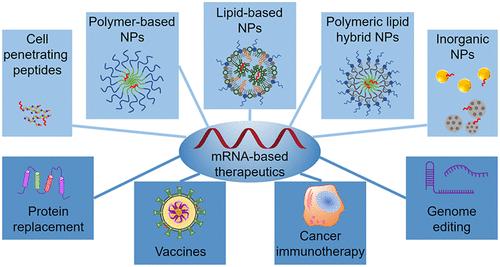 Fig.1 mRNA-based therapeutics. (Jiaxuan Li, et al. 2024)
Fig.1 mRNA-based therapeutics. (Jiaxuan Li, et al. 2024)
mRNA delivery technology has the following advantages:
- Good tolerability and safety, short-term and controllable adverse reactions.
- No risk of genome integration and insertion mutation.
- No risk of infection, and no need for viral particles.
- Easy to degrade, reducing toxicity in vivo.
- Activates humoral immunity and cellular immunity at the same time.
- Fast production, low cost, no need for cell culture.
mRNA Delivery Systems for Biologics
CD Formulation has established mRNA delivery systems for biologics, including but not limited to lipid nanoparticle-based mRNA delivery systems, polymeric nanoparticle-based mRNA delivery systems, adeno-associated virus-based mRNA delivery systems, lipid-polymer hybrid nanoparticle-based mRNA delivery systems, and biomembrane-based mRNA delivery system.
Adeno-associated virus-based mRNA Delivery System for Biologics
Adeno-associated viruses can be modified to mediate the transfer of mRNA into target cells and tissues, resulting in the transient expression of functional proteins. CD Formulation is good at researching and developing adeno-associated virus-based mRNA delivery systems...
Our mRNA Delivery Vectors
CD Formulation has developed mRNA delivery systems based on viral vectors and non-viral vectors to enhance cellular internalization of mRNA.
Viral Vectors
With the advancement of genetic engineering technology, lentivirus, adenovirus, and adeno-associated viruses have gradually become effective methods of mRNA drug delivery. Lentivirus integrates the target fragment into the host genome through reverse transcription. Currently, a three-plasmid system is commonly used to construct viral vectors, which completely separates the plasmid expressing the outer shell and the expression plasmid inserting the target fragment, thereby improving the safety of delivery.
Non-viral Vectors
We investigated ionizable lipid-based non-viral mRNA delivery agents including cationic or ionizable lipids and lipid-like materials, including liposome nanoparticles, polymer nanocarriers, inorganic nanocarriers, protein carriers, exosomes, etc. Our lipid nanoparticle delivery technology in non-viral vectors is the most widely studied and clinically mature mRNA delivery system.
Our Solutions for Enhancing mRNA Delivery Efficiency
Nucleic acid drugs constructed in vitro need to overcome many obstacles to function smoothly in vivo. There are many key factors that affect the efficiency of nucleic acid delivery, such as the stability of nucleic acid drugs in the body and the ability of nucleic acid drugs to cross barriers to reach the lesions. At the same time, how to promote lysosomal escape, improve protein adsorption of nucleic acid drugs, and improve the targeting of nucleic acid drug delivery are important for improving the delivery efficiency of nucleic acid drugs. According to the mechanism of action of nucleic acid drugs, we have set up a comprehensive solution, such as the selection of appropriate nucleic acid structure modification and drug delivery carriers, supplemented by advanced technologies such as ultrasound and laser pulses, which help to achieve good therapeutic effects.
- Enhance the stability and extend the half-life of nucleic acid drugs.
- Improve the ability of nucleic acid drugs to enter specific cells.
- Promote lysosomal escape.
- Improve protein adsorption.
- Improve the targeting of mRNA delivery.
Highlights of Our mRNA Delivery Technologies
- With the support of our advanced nanotechnologies, we are able to construct nanotechnology-delivery systems for mRNA including lipid delivery systems (such as lipid nanoparticles and liposomes), polymeric complexes, micelles, cationic peptides, etc.
- We can provide clients with customizing nanocarriers-based mRNA delivery systems such as lipid nanoparticle-based mRNA delivery systems, polymeric nanoparticle-based mRNA delivery systems, etc.
- Our core team has rich experience in exploring and researching how to improve mRNA delivery efficiency, and we have studied some strategies for enhancing mRNA delivery efficiency.
Custom Nanoparticle Development Services for mRNA
With the support of our mRNA delivery technology and nanotechnology platform, CD Formulation has developed multiple nanoparticles for mRNA delivery systems, including but not limited to lipid nanoparticles, polymeric nanoparticles, etc.
Lipid Nanoparticle Development for Nanomedicine
Depending on our state-of-the-art lipid nanoparticle technology platform and mRNA delivery platform, CD Formulation can also develop customized mRNA-lipid nanoparticle formulations to meet customers' different requirements.
Polymeric Nanoparticle Development for Nanomedicine
With the help of our mature polymeric nanoparticle technology platform and mRNA delivery platform, CD Formulation is able to develop and customize mRNA-polymeric nanoparticles, catering to clients' customized needs.
Published Data
Technology: Emerging mRNA technologies
Journal: Chemical Society Reviews
IF: 40.4
Published: 2022
Results:
The authors summarize and discuss the major advances in emerging mRNA technologies and the underlying chemical designs and principles. The authors propose various nanoparticle-based delivery strategies, including protein-mRNA complexes, lipid-based carriers, polymer-based carriers, and hybrid carriers for the effective delivery of mRNA molecules. The authors also propose typical mRNA delivery platforms for various biomedical applications (such as functional protein expression, vaccines, cancer immunotherapy, and genome editing). Through the development of mRNA technology, chemistry has played an important role from mRNA modification to the synthesis of mRNA delivery platforms, which has enabled various applications of mRNA in vitro and in vivo.
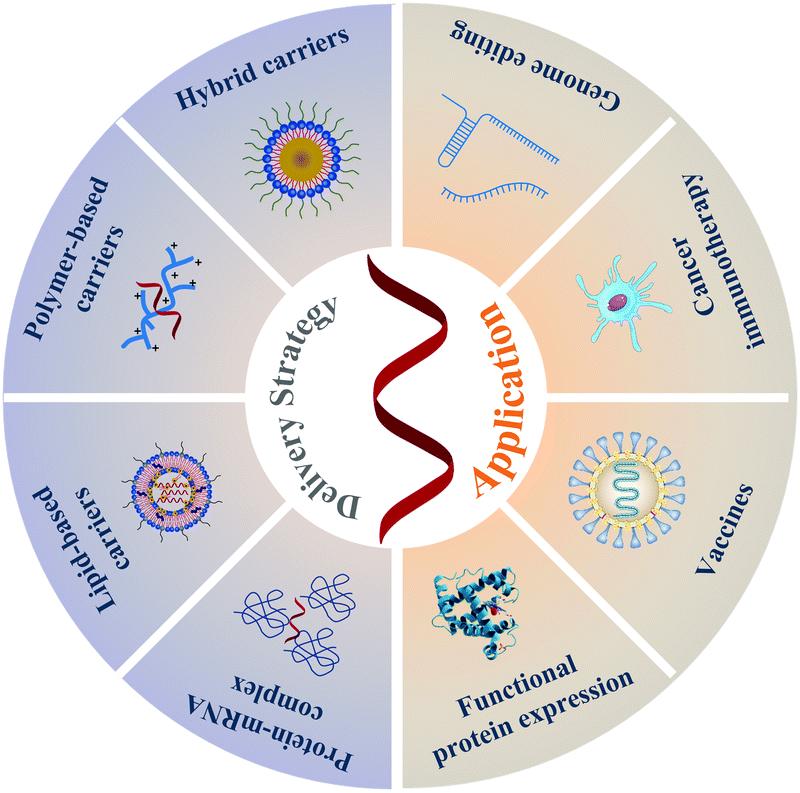 Fig.2 mRNA delivery strategies and biomedical applications. (Yufen Xiao, et al. 2022)
Fig.2 mRNA delivery strategies and biomedical applications. (Yufen Xiao, et al. 2022)
With the rapid advancement of mRNA delivery technology, mRNA stands poised to revolutionize vaccination, protein replacement therapy, and the treatment of genetic diseases. As a leading nanoformulation development and manufacturing service provider, CD Formulation offers a broad range of nanocarrier-based mRNA delivery systems to enhance delivery efficiency and facilitate the clinical translation of mRNA therapy. If you are interested in our mRNA delivery systems for biologics, please contact us.
References
- Jiaxuan Li, Yuning Zhang, Yong-Guang Yang, et al. Advancing mRNA Therapeutics: The Role and Future of Nanoparticle Delivery Systems. Molecular Pharmaceutics. 2024, DOI: 10.1021/acs.molpharmaceut.4c00276.
- Yufen Xiao, Zhongmin Tang, Xiangang Huang, et al. Emerging mRNA technologies: delivery strategies and biomedical applications. Chemical Society Reviews. 2022,51,3821-4200.
How It Works
STEP 2
We'll email you to provide your quote and confirm order details if applicable.
STEP 3
Execute the project with real-time communication, and deliver the final report promptly.
Related Services


 Fig.1 mRNA-based therapeutics. (Jiaxuan Li, et al. 2024)
Fig.1 mRNA-based therapeutics. (Jiaxuan Li, et al. 2024)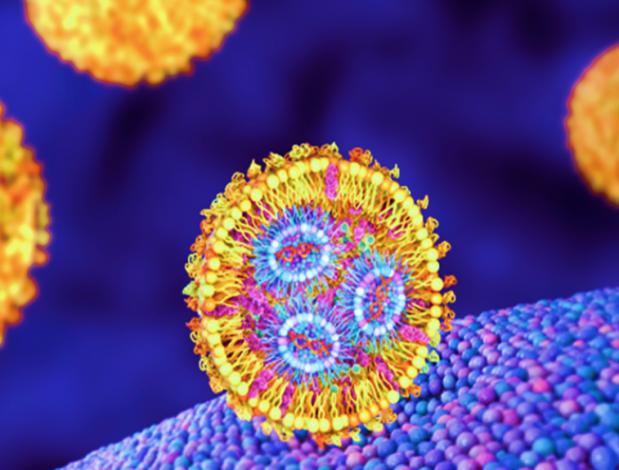
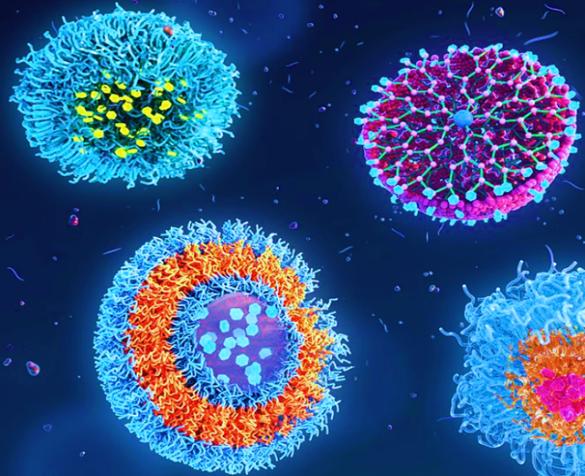
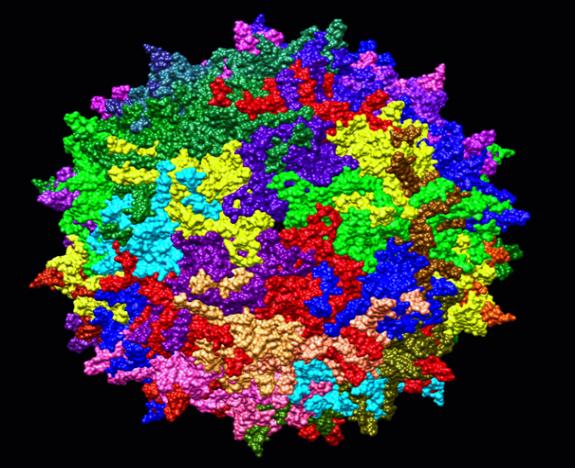

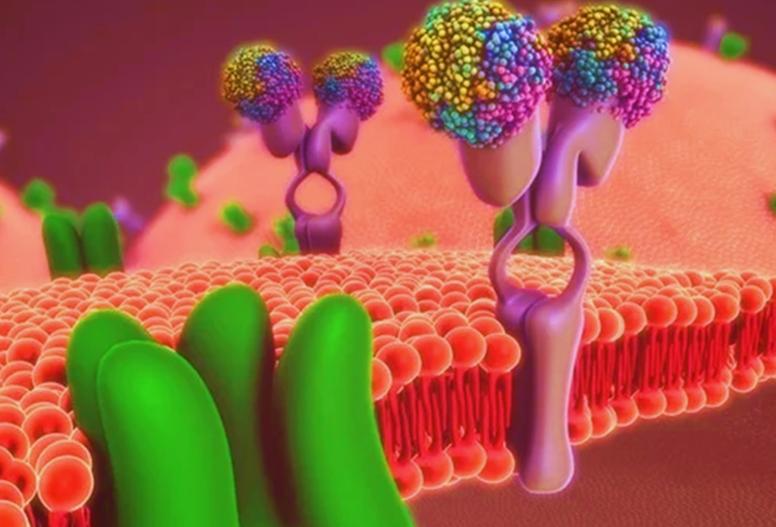
 Fig.2 mRNA delivery strategies and biomedical applications. (Yufen Xiao, et al. 2022)
Fig.2 mRNA delivery strategies and biomedical applications. (Yufen Xiao, et al. 2022)
